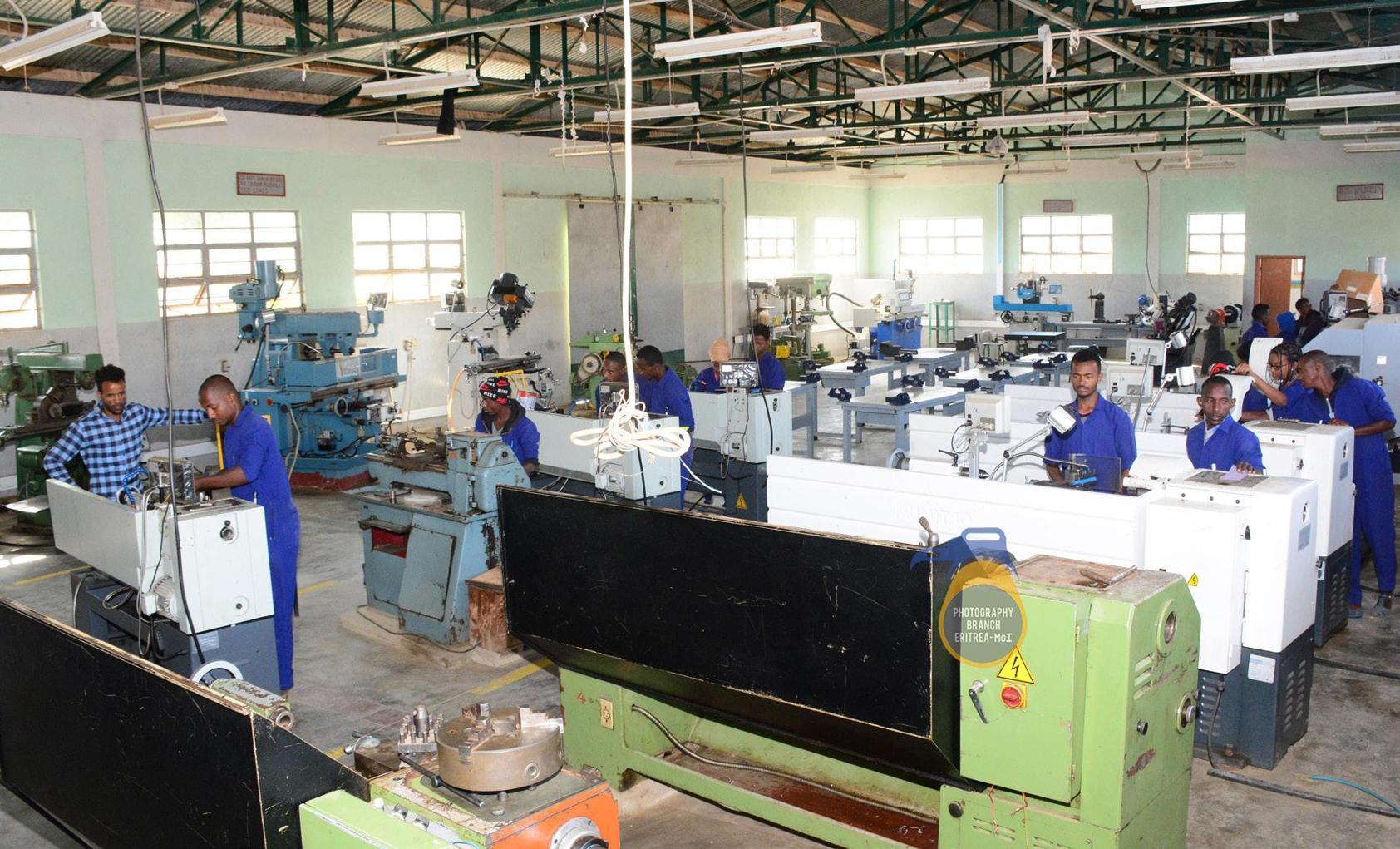Africa-Press – Eritrea. Recently, local media outlets reported that several hundred students from colleges in Asmara and Adi-Keih have successfully completed short-term vocational training programs. These programs complement the regular and long-term technical and vocational education offered across Eritrea, including in Dekemhare, Nakfa, Asmara, Hagaz, Mai-Habar, and Halay.
Beyond their various immediate benefits, these initiatives underscore Eritrea’s steadfast commitment to human capital development and its broader efforts to drive inclusive socio-economic growth, achieve sustainable development, and enhance the living standards of its people. As Eritrea continues to strengthen its technical and vocational education and training (TVET) infrastructure, these programs serve as a cornerstone in the nation’s strategy to equip its citizens with the necessary skills to thrive in an evolving global economy.
In this context, the skills and mindset developed through TVET programs provide young people with a viable pathway to formal employment. In Eritrea, thousands of young men and women have graduated from TVET institutions nationwide, acquiring high-quality training across diverse fields. The majority of these graduates secure stable, permanent jobs directly related to their training, allowing them to apply their skills, increase their lifetime earnings, and improve their quality of life. Furthermore, many TVET graduates eventually establish their businesses, becoming job creators rather than job seekers. This not only helps combat unemployment but also stimulates local economies by fostering innovation and Selfreliance.
Upholding rights, fostering cohesion, and promoting equality
Another vital, albeit overlooked, aspect of Eritrea’s TVET programs is their pivotal role in upholding fundamental rights, fostering social cohesion, and promoting gender equality. By equipping young people with essential skills and expanding employment opportunities, TVET contributes to creating a more equitable society. Globally, vocational training is recognized as a powerful tool for empowering marginalized communities by enhancing employability and fostering financial independence. In Eritrea, TVET institutions enroll students from diverse backgrounds, including those from historically disadvantaged communities and regions. This inclusivity highlights the program’s role in bridging historically vast socio-economic divides and ensuring that all citizens, regardless of particular background, have equal access to meaningful opportunities.
TVET programs also play a significant role in advancing gender equality, which remains a key priority for Eritrea. These programs have enabled young Eritrean women to gain expertise in trades traditionally dominated by men, such as carpentry, construction, woodwork, and metalwork. Many of these women have excelled in their respective fields, challenging deep-seated socio-cultural stereotypes and redefining perceptions of gender roles. (Just last week, a popular local television show presented the inspiring story of one young woman who had graduated from one of Eritrea’s TVET institutions and is now excelling in several fields, including carpentry, mechanics, and metalworks.) Their success reflects a broader shift toward empowerment, autonomy, and agency, reinforcing the importance of expanding access to vocational training for all. By fostering an environment where young women can not only participate but excel in technical fields, Eritrea is making strides toward a more inclusive and progressive society.
Eritrea’s ongoing investment in technical and vocational education is a testament to its commitment to developing a skilled workforce, fostering sustainable economic growth, and creating opportunities for its young people. By continuing to expand and enhance these programs, the country is laying the groundwork for a future in which every young person has the tools to succeed and make a meaningful contribution to society.
Moving forward, increasing collaboration between the government, TVET institutions, international development partners, and the private sector will be essential in ensuring that TVET remains responsive to local industry needs. If Eritrea continues to prioritize TVET, the benefits will extend far beyond individual employment, fostering a dynamic, self-sufficient economy that benefits the entire nation.
For More News And Analysis About Eritrea Follow Africa-Press







